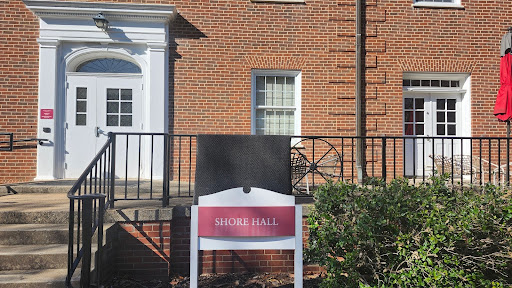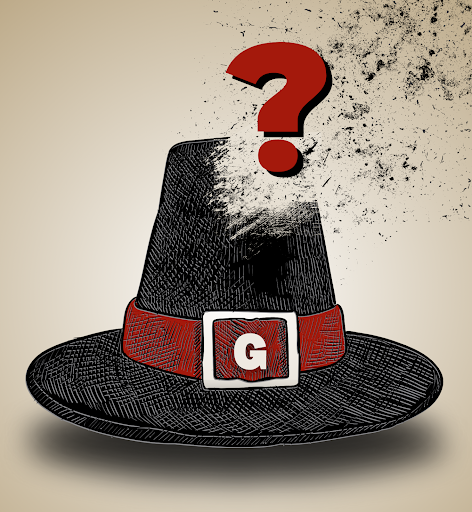When I first learned of Jeff Jeske’s death, the immediate sense of loss left me simultaneously dumb and frantic.
Almost unconsciously, I stood to move from my couch, as sitting was no longer an option. A swirl of memories darted forward as I paced all 1,000 square feet of my apartment backward and forward, willing myself at each lap to dredge up forgotten lessons he taught or books he recommended.
Like countless others, I knew Jeff was sick. I knew he wasn’t doing well, but that didn’t make the news of his death any less of a shock.
I met Jeff in August 2007. I was in the first semester of my first year at Guilford and, due to an embarrassing amount of AP English coursework in high school, found myself elevated to his early American literature class.
Determined to prove myself worthy, I threw every trick I could muster into our first essay. With each carefully placed punctuation mark and stylistic flourish screaming, “I’m-totally-smart-and-see-how-smart-I-am.”
The graded paper I got back was a horror show: a gory, repulsive mess of red pen with the letter “C” glaring menacingly at me in silent outrage.
Nauseated with embarrassment, I approached Jeff and asked for help. We met for our first one-on-one not long after my request. At that meeting, after he had arranged a pair of lawn chairs outside of Archdale Hall, made me tea and begun to explain each red mark on my paper, he asked what year I was in.
“I’m a freshman,” I said. “I’ve been here about five weeks.”
He laughed, handed me back the essay and said, “Right, well then, let’s not bother with all this right now. You’ve got some time ahead of you.”
Instead, Jeff asked me about me. He asked what I like to read, why I chose Guilford and where I grew up. We talked until we had drained our tea, and then we parted as equals.
And, that was Jeff: obviously brilliant but always keen to learn, radically empathetic but honest and kind, gracious and patient without expecting anything in return.
Over the next four years, I sought Jeff out. I enrolled in his classes. I worked as a staff writer and eventually as news editor for the student newspaper that he advised. In the process, I found my voice as a writer and found journalism, what would eventually become my career.
I didn’t know Jeff Jeske more or better than anyone else. To suggest otherwise would be insulting to any student, friend, co-worker, relative or acquaintance who also feels the weight of grief at his passing.
But, here’s some of what I recalled that night as I paced my 1,000 square feet of living space over and over again.
- Jeff loved horror movies, even bad ones. We discussed Bradley Cooper’s performance as a vegan amateur photographer in “The Midnight Meat Train” more than once.
- Jeff made the dreamiest margaritas. All I know for sure is that the recipe included Minute Maid concentrate and a lot of tequila.
- Jeff knew I harbored an illegal pet cat for two years, while living on campus. He inquired about her health frequently.
- Jeff suggested I read “Middlemarch” but only after I saw reason and finally read his beloved “Moby Dick” by Herman Melville.
- Jeff took walks around campus almost every morning, rain or shine.
Since his death, I find myself turning to books for solace. One quote in particular sticks out: “That’s the thing about pain. It demands to be felt.”
Because Jeff wasn’t a snob, he won’t mind me quoting John Green, especially because he believed in the power and magic of a well-placed quote.
Grief demands so much of us. My personal grief demanded I pace, remember, read and write.
My words and memories feel weak and unworthy of Jeff Jeske, the mentor, professor and man who gave me and countless others the confidence to write and the tools to do so.
So, I turn to Henry David Thoreau, a man Jeff would most certainly approve of.
From “Walden,” “To be awake is to be alive. I have never yet met a man who was quite awake. How could I have even looked him in the face?”
Jeff Jeske lived his life awake. For that, I will always be grateful to have known him.












